Ten Bears and The Outlaw Josey Wales
Sitting down with a cool one and dinner last night, I found "The Outlaw Josey Wales" was on again.
Hands down, this is in my opinion the best Western ever. The gunfights are fantastic, but it's the dialogue and history that shine.
In the scene above, Wales goes to meet with Ten Bears, who has captured two of Wales' fellow homesteaders. Much like the ancient Samurai, Wales enters Ten Bears' camp as if he was already dead, and had nothing to loose.
Though I've seen the movie before, this time I had something to gauge the historical issues they portray in the show. I've been reading Howard Zinn's epic work "A People's History of the United States". I'll have much more to say in a future review, but I just finished reading the chapter on all the treaties with the Indian Tribes that were broken, ignored, and withdrawn. Zinn reports the words of authorities and Newspaper editorials that scream racism and "manifest destiny" of the white man.
Below, "Lone Wati" relates to Wales the story of his people, and the tragedy of "The Trail of Tears":
Here's a little history about the movie from Wikipedia:
"Historical basis Josey Wales' circumstances somewhat mirror those of a notorious bushwhacker named Bill Wilson, a folk hero in Phelps and Maries counties in Missouri. During the war, loyalties in Missouri were divided. Bill Wilson maintained a neutral stance until a confrontation with Union soldiers on his farm on Corn Creek near Edgar Springs, Missouri. Wilson became a wanted outlaw before leaving for Texas.[13]
The character Fletcher is loosely based on Capt. Dave Poole, one of Quantrill's Raiders. After the war, Poole assisted Federal authorities in convincing guerrillas to give up the fight and surrender.
This film is the first to confront the history of the Missourians who fell prey to Kansas-based Unionists who called themselves Redlegs (after their red-striped stockings and gaiters) and Jayhawkers.[14] It is a revisionist film in that it abandons the standard presentations of the Unionists that characterized Hollywood productions up to that time, along with the dark depictions of the Missouri riders.[15] The Outlaw Josey Wales reverses these stereotypes."
From "The Wall Street Journal":
"Mr. Eastwood has called his 1976 Civil-War era Western "The Outlaw Josey Wales" (which tells the story of a Missouri farmer avenging the murder of his family by Union soldiers) an "antiwar" film."
I'll have more on Howard Zinn's "A Peoples History of the United States" later-
Subscribe to:
Post Comments (Atom)
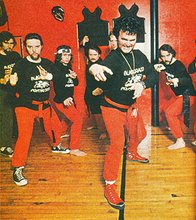




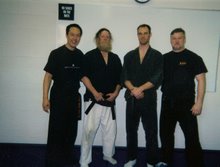
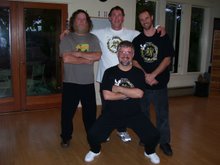

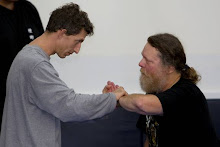
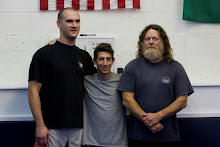



4 comments:
Hands-down it's in my top 10 best westerns! Period.
Amen on one of the best westerns! I've got that right on my video shelf.
It's a great coincidence that you compare westerns and samurai movies. Eastwood and many other western actors and directors loved Kurosawa flicks.
Just last week, I'd checked out "Yojimbo" from my local library. It's about a ronin, played by Toshiro Mifune, who played several gangs against each other for his own profit. It was the inspiration for "For a Few Dollars More."
Just look at Mifune's body language in his movies, like "Yojimbo" and "Sanjuro." You'll see where Eastwood gets a lot of his schtick.
Last fall I went through a huge Eastwood movie marathon and this was at the top, right next to "The Pale Rider."
My third-to-last night in Japan after 16 years.....you have given me a great post, and a mission for a movie to watch for the first time (shame shame) once back in the US.
Post a Comment